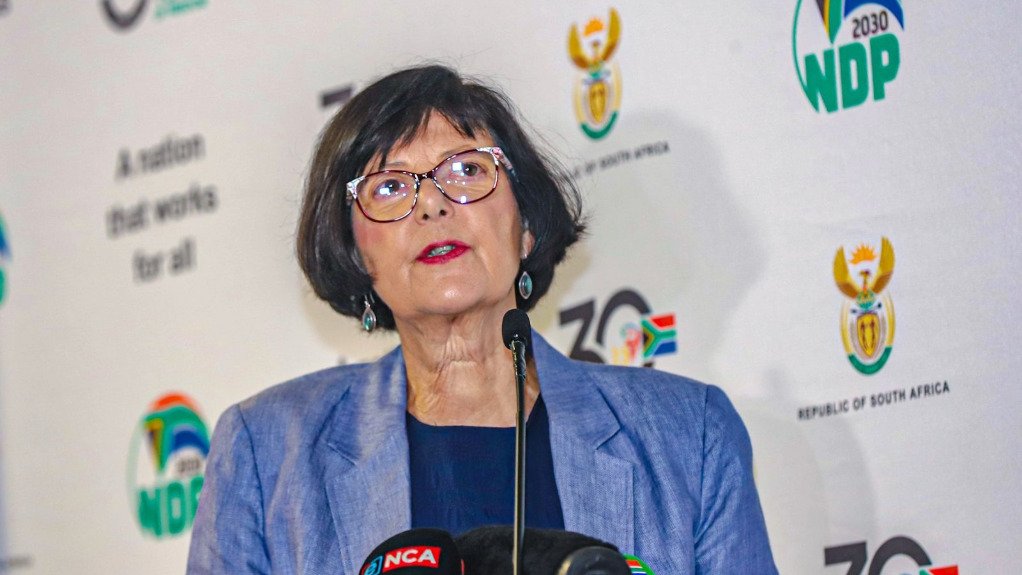Business
Creecy Opens Durban Fuel Hub to Black-Owned Players in Push for Energy Security

In a move that could reshape South Africa’s energy landscape, Transport Minister Barbara Creecy has instructed the Transnet National Ports Authority (TNPA) to open up Durban’s fuel hub to black-owned players, while locking in measures to secure the country’s fuel supply.
On Thursday, Creecy invoked Section 79 of the National Ports Authority Act, a rarely used power that allows her to bypass the normal leasing process when national interest is at stake. Her decision focuses on Durban’s Island View precinct, a high-stakes corridor where roughly 70% of South Africa’s fuel imports arrive.
Breaking Open a Closed Club
For years, black-owned businesses have struggled to break into the bulk fuel storage sector, a space long dominated by multinational oil giants and established operators. Creecy’s directive changes that by allocating 15% of Island View’s capacity to the Central Energy Fund (CEF), with room to expand to 30%.
The CEF, which bought the flood-damaged Sapref refinery from BP and Shell in 2024, will now act as a gateway for emerging black-owned players, offering them access to facilities they have historically been excluded from.
“Bringing new players into the industry will not only expand participation but also ensure that all South Africans have a stake in the port operations,” Creecy said.
Industry Reactions: A Mix of Relief and Demands
The decision has been widely welcomed across the fuel industry. After years of uncertainty with only short-term leases on offer, terminal operators now see a path for long-term investment.
“The Section 79 letter was issued to our members. It is in our favour. Remember we wanted long-term tenure, so we got that,” said Fani Tshifularo, CEO of the Fuels Industry Association.
But not everyone thinks the minister went far enough. Kganki Matabane, CEO of the Black Business Council, said the 15% allocation should be expanded:
“The ownership, management, and control of the economy should ultimately reflect the demographics of South Africa’s population.”
On social media, business commentators have echoed this call, with some describing Creecy’s intervention as a “good first step” but warning that meaningful transformation will require more than just access, it will require financing, skills transfer, and robust oversight.
Safeguards for Supply Security
Creecy’s directive is not just about transformationit’s also about stability. Under the new agreements, operators must commit to skills transfer, capital investment, and safe operations, while ensuring that infrastructure reverts to TNPA ownership after 25 years.
The TNPA is also tasked with creating a transparent framework to manage third-party access, preventing established players from locking out newcomers.
With fuel supply disruptions fresh in public memorywhether from floods, port bottlenecks, or global oil shocksthe directive aims to give South Africa both diversified ownership and reliable supply chains.
Looking Beyond Durban
While Durban Island View is the big prize, Creecy also confirmed a 25-year lease renewal for Astron Energy at the Port of Cape Town, signalling that government is prioritising long-term certainty across the sector.
The directive also strengthens the hand of the South African National Petroleum Company (SANPC), a CEF subsidiary, by granting rights to build a new single buoy mooring system that will further anchor access for new entrants.
A Turning Point for Energy Transformation?
South Africa’s liquid fuels sector has been notoriously slow to transform, with black-owned companies often kept at the margins. By opening the doors at Island View, Creecy has fired a shot across the bow of the old orderwhile also taking a calculated gamble that transformation and energy security can move hand in hand.
Whether this marks a true turning point will depend on how the framework is implemented, how much capacity the CEF can actually make available to black-owned firms, and whether new players can access the financing needed to compete with global giants.
For now, though, Creecy’s move has done something rare in South Africa’s energy politics: it has put both empowerment and fuel security on the same page.
{Source: IOL}
Follow Joburg ETC on Facebook, Twitter , TikTok and Instagram
For more News in Johannesburg, visit joburgetc.com



























